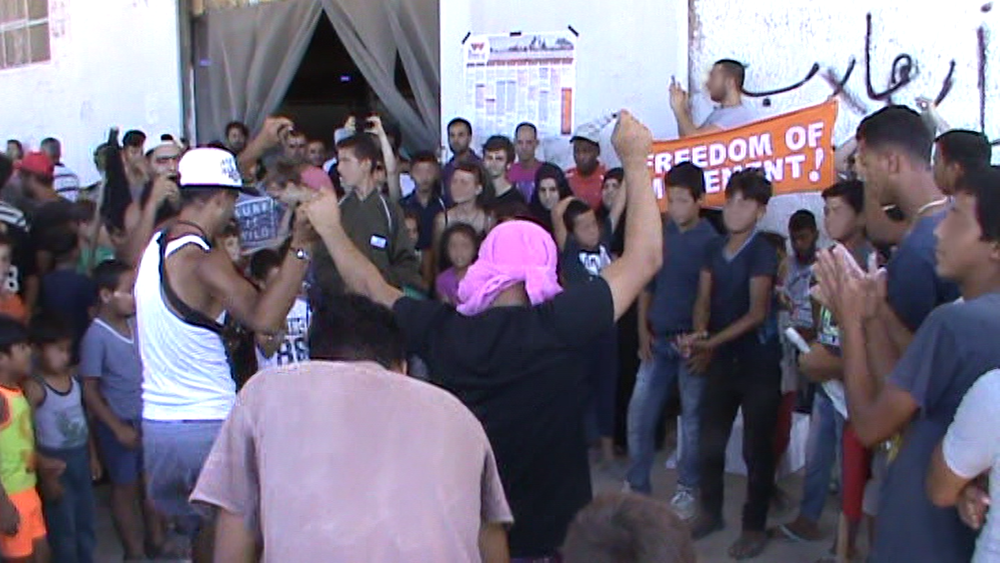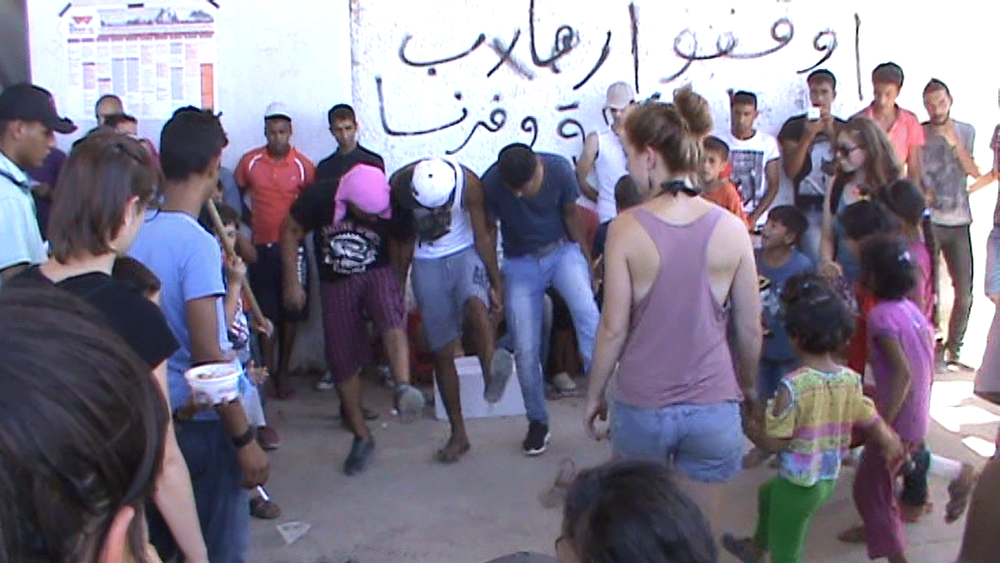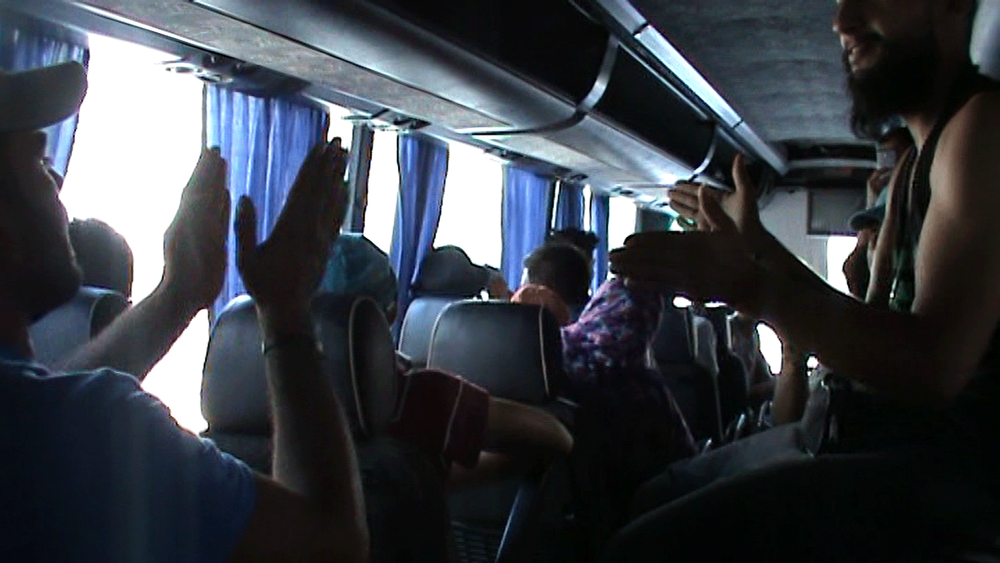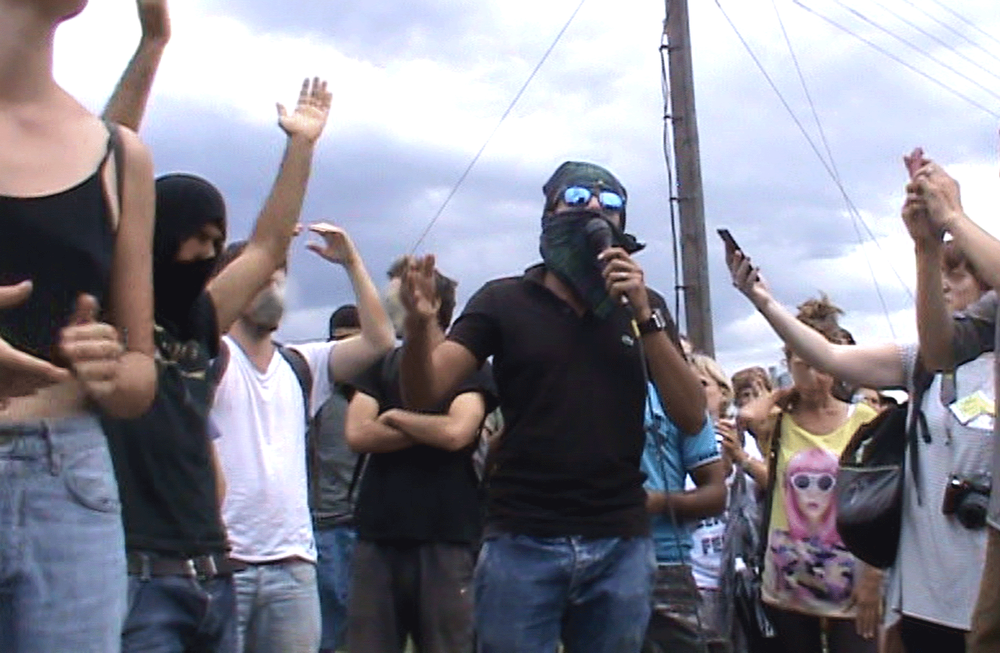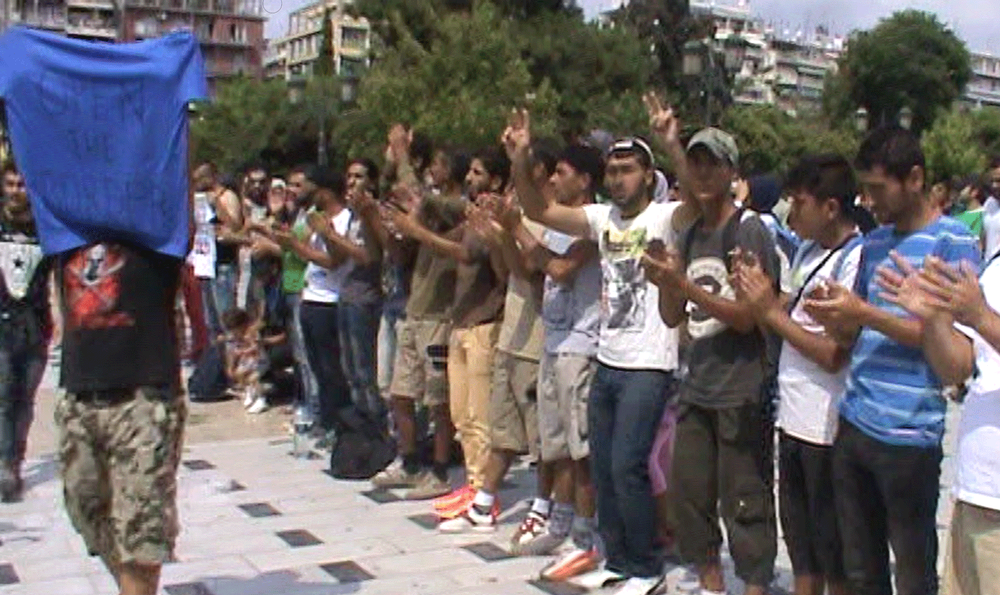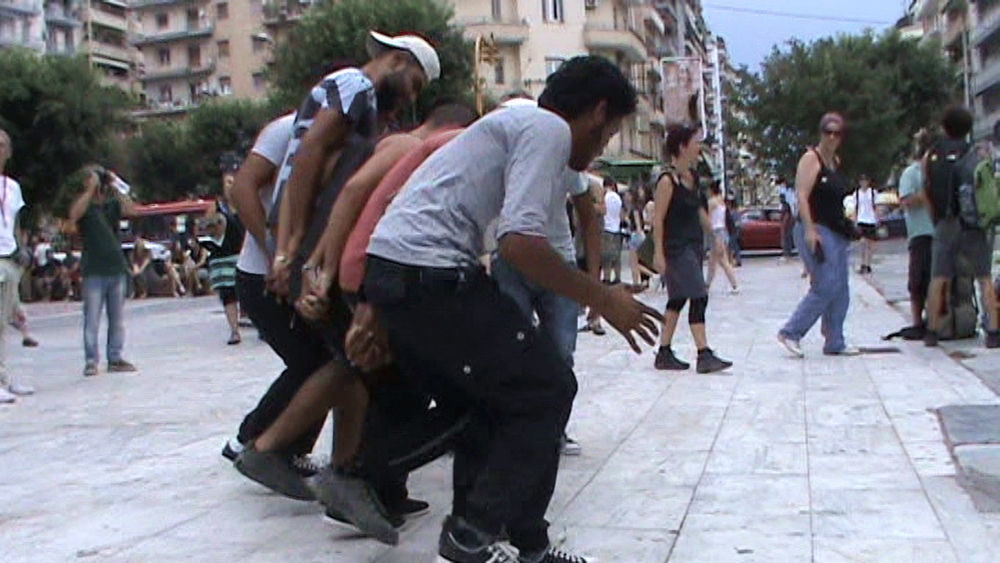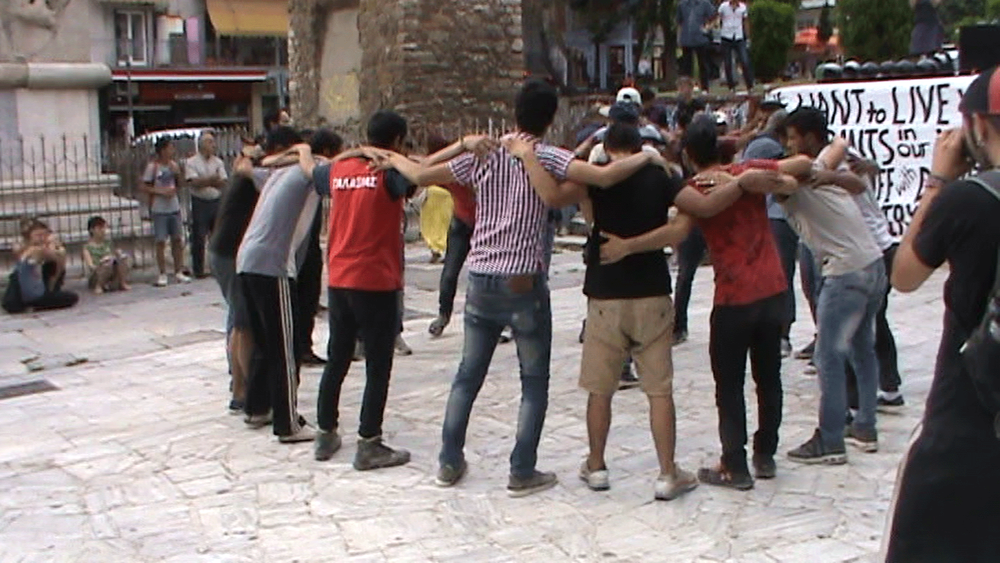Music in the experience of forced migration from Syria
to the European Borderland
A research project at MMRC (Completed)
Project report:
The dissertation project “Music in the Experience of Forced Migration from Syria to the European Borderland” examined the role of music in the lives of Syrian forced migrants against the backdrop of the war in Syria and the 2015 refugee movement to Europe. Situated within ethnomusicology, the research focused on encounters between Syrian forced migrants and European societies, exploring musical responses to experiences of conflict, displacement, dehumanizing refugee policies, and polarized public discourses on migration.
The study addressed three central questions: What music is being performed by Syrian forced migrants in Europe? How does this music become meaningful during the refugee journey and in contexts of urban resettlement? What are the socio-political implications of this music, given that refugees in Europe are at great risk of discrimination?
The theoretical foundation of the project drew on a wide range of perspectives, including ethnomusicological and historical research on Syrian music, urban ethnomusicology, music and minorities research, the anthropology of forced migration, cultural and gender studies, critical citizenship studies, and digital media studies. Music in forced migration contexts was approached as a form of agency and as a medium of cultural, social, and political negotiation, through which marginalized and stigmatized refugees could enact themselves as potential citizens. The research further adopted an intersectional lens to examine how gender, ethnicity, and class shaped access to musical and social participation, while acknowledging the impact of power relations between majority and minority groups in musical expression. A reflexive and applied ethnomusicological perspective guided the entire project, emphasizing the potential of ethnomusicological research to foster intercultural understanding and to amplify refugees’ claims and experiences to broader audiences, including educators, cultural policymakers, socio-political and cultural initiatives, and grassroots activists.
Methodologically, the research was based on multi-sited ethnographic fieldwork, combining participant observation, interviews, and digital ethnography. Fieldwork was conducted in Thessaloniki, Greece, between 2016 and 2017 and Vienna, Austria, between 2019 and 2023. These two sites represent different phases of migration. Thessaloniki, as part of Europe’s external border, provided a refugee journey context characterized by temporary settlement and restricted mobility in camps, while Vienna represented an urban environment of resettlement and long-term residence. Data analysis integrated field observations and interpretations of public musical performances with existing literature on Syrian music and migration, allowing for a comparative understanding of how music operates across changing social and political conditions. This resulted in a three-fold narrative, from Syria before and during the conflict, based on historical evidence, to the refugee journey and finally to resettlement, based on ethnographic field research.
The project began by tracing the trajectory of modern Syrian music from the mid-20th century to the 2011 uprising, highlighting its intertwined artistic and political dimensions. Music in Syria had long reflected the tension between the authoritarian state’s national cultural policies and censorship practices on the one hand, and individual creativity and freedom of expression on the other. The civil war and ensuing displacement disrupted established musical infrastructures but simultaneously fostered new creative practices in exile. These emerging expressions reinterpreted national and regional traditions while addressing the experiences and aspirations of a dispersed Syrian society, transformations that were further examined through two case studies.
The first case study, conducted in Thessaloniki between 2016 and 2017, focused on the musical expressions of Syrian migrants during protests in refugee camps and urban settings. Public performances—ranging from shaʿbiyyah popular/folk music and ṭarab urban art music to protest songs from the 2011 uprising—served both as emotional support and social struggle, confronting the restrictive and depoliticizing nature of EU border policies. Experiences in these refugee camps were later reflected in new creative projects, including electronic dance music. Many of these musical acts were documented and shared via social media by the Syrian refugees themselves, connecting them with audiences across Europe and Syria, and creating digital networks of solidarity and visibility. In this way, music enabled what might be described as “acts of citizenship,” through which refugees asserted their rights in spaces where formal citizenship was suspended.
The second case study, conducted in Vienna between 2015 and 2023, focused on the city’s growing musical presence of Syrian migrant musicians and their artistic projects. A central example was the “NAI Oriental Orchestra and Choir,” founded in 2015, which performs Syrian folk, Arab classical ṭarab, and contemporary Arabic repertoires. The ensemble became a key platform for community-building and professional engagement, allowing Syrian musicians to sustain their cultural heritage within Vienna’s predominantly Western musical environment and to collaborate across political and religious divides. Beyond this collective, Syrian professional musician who arrived in Vienna as asylum seekers pursued diverse projects—spanning oriental jazz, Kurdish and Arabic shaʿbiyyah music, as well as contemporary Arabic music. While confronted with established expectations from the Austrian public regarding both their origin and their status as refugees, these artists addressed themes of memory, cultural identity, the war in Syria, and urban intercultural coexistence, with some of the works conveying explicitly or subtly visions of a future free and democratic Syria. One notable initiative, the “Dabke-Dilan” project, brought together Syrian-Arab and Kurdish migrants with native-born Austrians in public dance performances of popular/folk shaʿbiyyah music, offering experiential tools for reimagining and negotiating ethnic, cultural, gender, and class boundaries in Vienna’s public spaces. Through such events, the city’s public spaces were transformed into sites of shared belonging and urban acts of citizenship.
Both case studies showed that, within Europe’s polarized climate surrounding migration and asylum policies, Syrian migrants’ music had a significant sociopolitical impact across a variety of settings—from refugee camps and public spaces to concert halls and digital platforms. While musical expressions encompassed a diverse range of genres and held distinct meanings for Syrian migrants across different social, gender, and cultural backgrounds, public performances in particular consistently functioned as platforms for asserting social visibility and rights, enacting alternative forms of citizenship, and fostering inter-community solidarity. These performances thus became a crucial space for musical negotiations of power and belonging across Syrian, European, local-urban, and transnational contexts.
The findings of this research are presented in a 500-page dissertation, including an extensive archive of audio and visual material. The dissertation can be accessed at the library of mdw or by contacting the author at christidis@mdw.ac.at.
Project realization: Ioannis Christidis
Project supervision: Ursula Hemetek
Project duration: March 1, 2020 to June 4, 2024
Funding: Austrian Science Fund FWF Grant-DOI 10.55776/Z352
